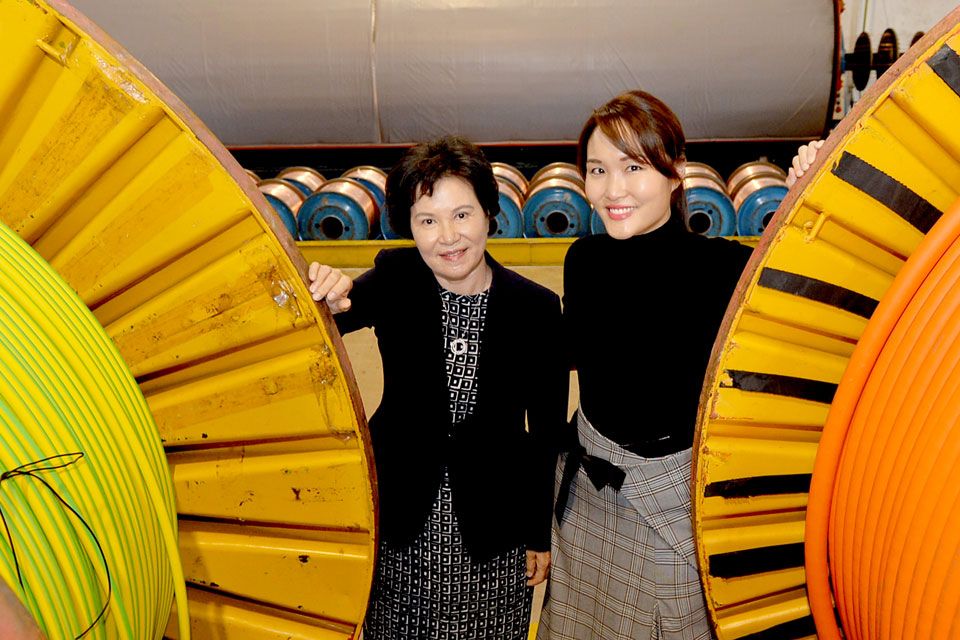
The Currency of Trust
In a survey conducted by PWC, 49% out of 3000 CEOs believed that a lack of trust within the organisation is hindering organisation growth. In companies where high trust levels have been established, employees report 74% less stress, 50% higher productivity, 13% fewer sick days, 76% more engagement and 29% more satisfaction with their lives. In this climate of uncertainty, how do organisations go about cultivating trust? We speak to Keystone’s HR and Marketing Director Pearl Yu, to find out more.
Keystone Cable
Keystone is a 130-strong privately owned cable manufacturer in Singapore with a regional presence. Keystone started as a manufacturer of low voltage power cables for the building industry, and over the past 30 years has expanded into cables for infrastructure, data communications, smart city and industrial sectors – in line with both domestic and global trends.
Pearl: “As we continue to push our boundaries to operate in this dynamic environment, diversifying our products and expand our markets for long term sustainable growth; one of the key challenge is to ensure our people have the right skillsets and mindsets to not only perform for today, but also to transform our business for the future.”
Pearl: “Human capital development is a journey. Since our first HCDT we have implemented many changes, but there is still a lot more we want to work on. I believe that HCDT is not just a diagnostic tool on where you are at; but it is also an educational tool that helps advise your human capital development journey by highlighting priorities to improve on to see result .
We received a comprehensive diagnosis, or “health check”, of our organization’s strengths and gaps. We then worked closely with our consultants from Korn Ferry to identify priority areas to work on that would make the most strategic impact. We managed to implement some of the low hanging fruits right away but there are others that took us a while to change, like organization structure redesign. So, the benefits we received from the HCDT and the consultation after lasted us a while.”
Pearl: “One of the most impactful things we did was to align our mindset on our values, desired culture, and people philosophy. To transform an organisation, we believe in developing people and providing them with career mobility. Out of the 11 Human Capital areas in the tool, we focused on four things – (i) adopting a transparent performance management process, (ii) designing career pathways that creates upward mobility (iii) cultivating a culture of trust and openness (iv) upskilling our employees – we established Keystone Academy in 2013 to expose our staff to more learning opportunities through cross sharing and cross departmental projects. What we have now is a more unified, committed and engaged workforce.”
According to Kevin Cashmen, Senior Partner in Korn Ferry and CEO Advisor, there are three fundamental leadership questions to answer to build trust within organisations:
1. The big what question (Vision): What does this better future look like?
2. The big how question (Strategy and Policy): How are we going to get there?
3. The big why question (Purpose): Why should we aspire to go there together?
We want our leaders to bring clarity to all three, but also to engage us to participate in the crucial co-creation of real outcomes. And, although all three big questions are critical to sustained leadership, there is one that is more primary: No amount of what and how can ever compensate for a lack of why.
Pearl: “I think Trust is the key enabler that influences the effectiveness of communications and engagement during this period. Building employee trust helped tremendously in Keystone’s COVID crisis response as employees were engaged and supportive throughout the period. I must say that we relied a lot on our middle managers to create and execute the business continuity plan. It was very bottoms up and consultative – our leaders were committed, responsible, and trust was there. Two thirds of our employees do not have emails. So instead of relying on the notice boards as we did in the past, we switched to WhatsApp to disseminate official notices so that messages get relayed in real time to our workforce.”
Pearl: “When we communicate the situation and manpower plans to the ground, we ensure all messages are sent with a formal template, so that people know it is cascaded from the management and have clarity on the latest updates. We also show our care with weekly fresh fruit baskets for our workers in dorms who were all cooped up with no recreational activities. During CB, we also conducted weekly trainings by different in-house trainers on zoom, and opened it to the entire company so that people could feel connected and continued to learn. I am very thankful for the kind of unity and responsibility our people have shown in this period.”
Pearl: “I think developing agility in your leadership team is very key – and agility is not the same as adaptability. Agility is more about playing offence, really anticipating changes, and leveraging on it. To do that, we as business leaders need to look at enabling tools to develop and upskill our people. I think the HCDT tool is a great start as a catalyst for those conversations.”

If you are a business leader also looking into leveraging on your human capital to accelerate through this crisis, reach out to us for a complimentary advisory Human Capital Health-check at hcdiagnostics@ihrp.sg.


